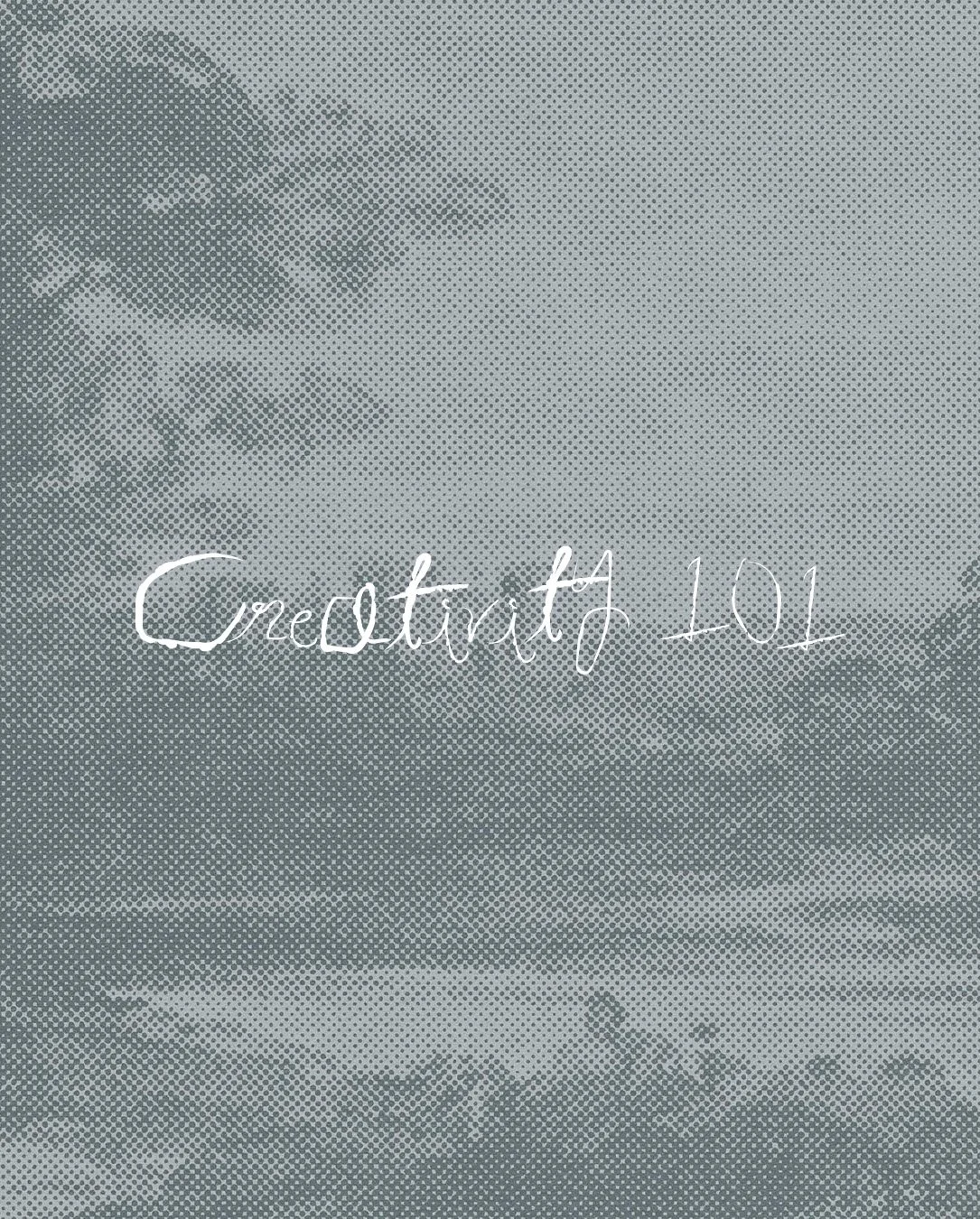Course: Creativity 101
Instructor: Jordan Holt
1Hour | 11 Chapters | Philosophy, Creativity
Overview
In Creativity 101 - Foundations, we delve into the psychology, science, and philosophy behind creativity, unpacking how it works and why it’s often misunderstood—especially within the Church. This course helps redefine creativity, not as a luxury or accessory, but as a vital aspect of human expression that brings us closer to the essence of who God is and how He shapes the world.
From debunking common myths like “Everyone is Creative” to exploring the science of divergent and convergent thinking, Creativity 101 guides you through a nuanced understanding of what it means to create with purpose. Learn how creativity is both a personal journey and a communal experience, impacting everything from personal development to team dynamics in churches and beyond. Discover tools and practices to expand your creative intelligence and harness it for meaningful impact, even in the face of risk and self-doubt.
Ideal for artists, church leaders, and anyone curious about exploring new perspectives, this course combines deep insight into the “why” behind creativity with practical tips on how to grow. By the end, you’ll gain not only a clearer understanding of creativity but also the confidence to embrace it as a powerful force for transformation in your life and community.
-
In this chapter, we redefine what it means to be creative by examining creativity’s core components—novelty, usefulness, and quantity. You’ll learn how creativity differs from simple skill, uncovering why generating many unique, valuable ideas is central to the creative process. We’ll break down the stages of creativity, from inspiration to execution, and highlight how understanding these stages can elevate both personal and collaborative efforts.
-
This chapter tackles the popular notion that “everyone is creative,” exploring the scientific and psychological aspects that make true creativity rare. We’ll debunk the myth, revealing why genuine creativity involves more than basic idea generation—it requires a unique capacity to produce novel and valuable ideas. Understanding this distinction helps identify and cultivate authentic creativity within yourself and those around you.
-
Not everyone needs to be creative, and in this chapter, we’ll explore why. By examining creativity’s unique role and the importance of other strengths, we’ll discuss how creativity fits alongside other skills and why a balanced mix of personalities and abilities benefits any team, community or economy. Understanding that not everyone should be creative allows us to better appreciate each person’s unique contribution.
-
This chapter challenges the idea that creativity is something to be developed “later” in life or only after mastering other skills. Drawing on research and personal anecdotes, we’ll uncover why creativity thrives best when nurtured early and continuously. You’ll see how fostering creativity from the start, even alongside skill development, leads to richer, more innovative outcomes in both personal and communal settings.
-
In this chapter, we address a unique challenge within the Church—the belief that “doing something new” is selfish or distracts people from connecting with God. Many Christian leaders and industry creatives feel it’s safer to avoid original expressions, instead leaning on formulaic, predictable practices. We’ll uncover how creativity, far from being self-serving, can inspire fresh encounters with God and foster deeper connections within the community, transforming dull routines into vibrant acts of worship.
-
This chapter dismantles the idea that creativity requires complexity, showing how simplicity can be just as innovative and impactful. We’ll explore how creative expression doesn’t always mean elaborate arrangements or intricate designs; sometimes, the most profound art is found in simplicity. By understanding this, you’ll learn how to foster creativity in a way that’s accessible and impactful, whether in a worship setting or personal practice.
-
In this chapter, we confront the idea that creativity is “too risky” and examine why fear of the unknown often holds people back from fresh expressions. Drawing on examples from art and history, we’ll see how risk-taking has led to some of the most transformative movements in culture and faith. This chapter invites you to embrace the potential of creativity, even with its uncertainties, as a path to meaningful growth and change.
-
This chapter addresses the misconception that the creative process should include focusing on the audience or consumer. We’ll explore why creating with an authentic, personal vision often leads to the most impactful art that, in turn, serves others. Drawing on insights from artists and creatives, we’ll discuss how true creativity comes from pursuing what resonates deeply within you, rather than catering to others’ expectations.
-
In this chapter, we dive into the scientific tools and techniques that can help enhance your creative intelligence. You’ll learn practical, research-backed methods to boost divergent and convergent thinking, build creative habits, and increase your capacity for innovative ideas. By applying these tools, you can develop a sharper, more versatile approach to creativity that supports both personal growth and community impact.
-
This chapter focuses on actionable steps you can take to nurture and grow your creative abilities. We’ll cover practical tips that help you break through creative blocks, establish routines that foster inspiration, and create an environment that encourages innovation. These insights are designed to help you integrate creativity into your daily life, making it a natural part of both personal and professional pursuits.
-
In this final chapter, we explore the deeper “why” behind creativity, encouraging you to ask “What if?” as a way to tap into spiritual wisdom and divine purpose. Through questions and reflections, we’ll examine how creativity connects us to something greater and allows us to express profound truths. This chapter is designed to inspire you to view creativity as a meaningful, purpose-driven journey that goes beyond personal gain.

